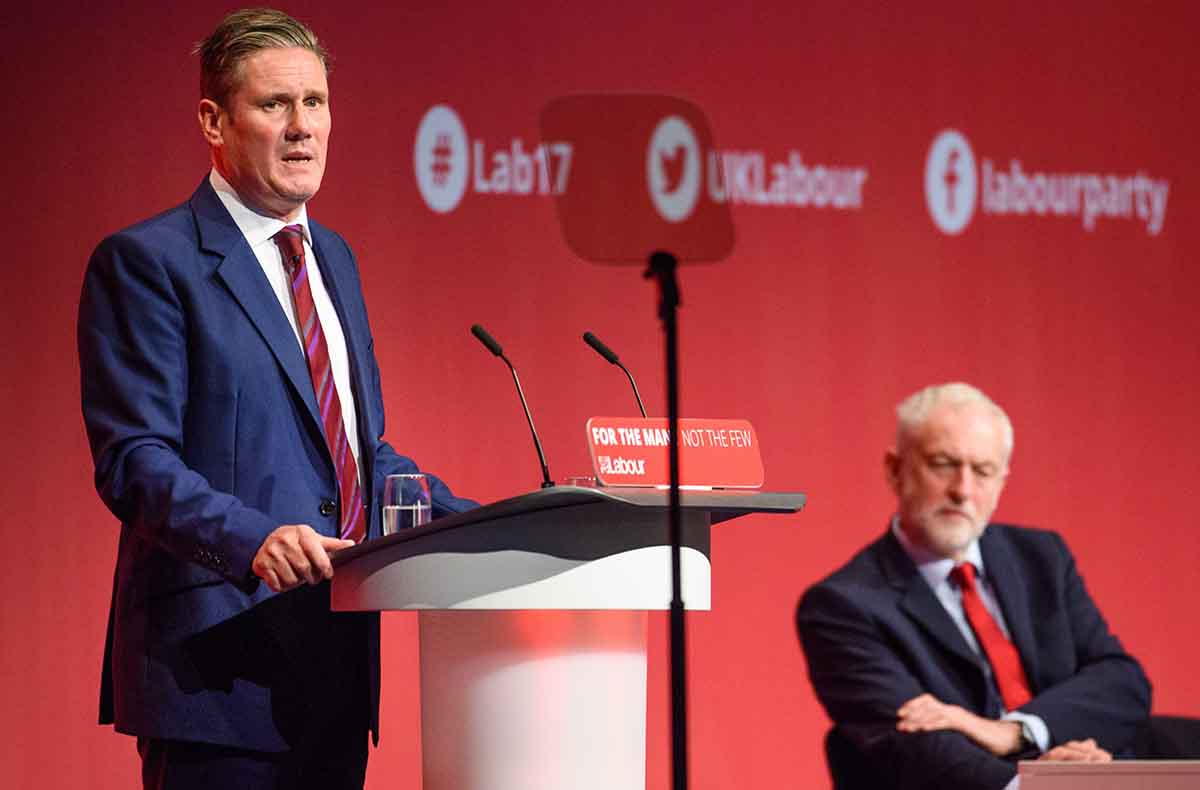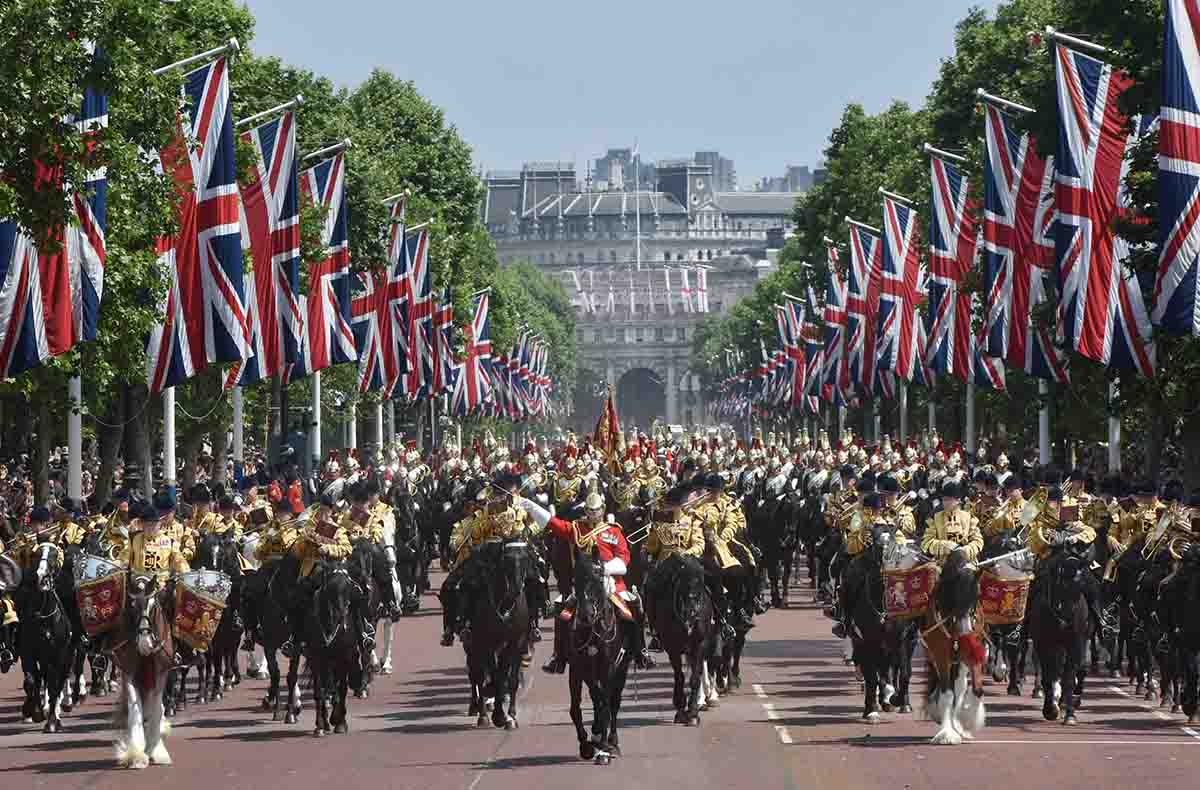
Sir Keir Starmer’s attempt to gain a stranglehold on the Labour Party could well rebound against him. His move to force former leader Jeremy Corbyn into the wilderness is likely to cause a civil war on the center-left of British politics that will rumble on until the next election.
But that may be exactly what Starmer wants.
Both men are divisive figures. Corbyn, the MP for Islington North, has been blocked from standing for election in a constituency that he has represented for 40 years. It is unlikely he will go down without a battle. Every indication suggests the 73-year-old will fight for his seat as an independent.
Corbyn’s allies are apoplectic at his treatment. The National Executive Committee voted 22-12 to side with Starmer. There is a significant groundswell of feeling in the Labour Party that has sympathy for the deselected former leader.
Yet, for those at the other end of the political spectrum, Corbyn fits the profile of the classic Socialist bogeyman. Starmer claims that his predecessor’s leadership was the “number one” issue raised by voters on the doorstep in the run-up to the 2019 General Election. The title of Corbyn’s manifesto in 2017—“For The Many, Not The Few”—certainly scared high earners and his image as a radical worried the socially reactionary elements among traditional Labour voters, especially those in the so-called “Red Wall” seats in the north of England.
Where Corbyn did galvanize support was among the young and in the party’s metropolitan heartlands—places like Liverpool, London and Manchester. The right-wing media characterized his popularity as being a “cult” and this triggering term has followed him around.
The C-word has been used against Starmer, too, but this time in Parliament. “They used to say Corbynism was a cult,” a Labour MP told me at the end of last year. “There’s a bigger cult around Starmer than there ever was around Corbyn.”
The latest polls predict a landslide for Labour. Estimates put Rishi Sunak’s Government anywhere between 15% and 20% behind in voting intentions. Starmer has not offered much of an alternative to the Conservatives, who have been in power for 13 years. He has not really challenged them on Brexit or the small-boat migration crisis, sticking to the line that he would do things better than the Tories but not necessarily differently. There are no radical rethinks in the Labour leader’s playbook.
What does concern him is the Conservatives weaponizing Corbyn. Starmer is trying to put the maximum distance possible between him and his predecessor. It comes from a deep-seated belief that the electorate is afraid of socialism.
Another Labour MP spoke about Starmer’s “people,” and explained their mindset. “They want to eradicate any semblance of socialism from the party,” they said.
The danger is splitting the party. The reward, the Starmer camp believes, will be power.
All this is a riskier business than it seems. For now, it feels inconceivable that the government could mount a comeback in the less than two years between now and a General Election. The main strategy of the Conservatives appears to be to ramp up the threat of asylum seekers and trade on the sort of xenophobia and racism that defined the Brexit referendum. Starmer will echo this hard line rather than reject it.
That could rebound.
For all his many flaws, Corbyn is a conviction politician. He was never leadership material and his failure to take decisive action—particularly on the anti-semitism issue—will always reflect badly on him. He was much more effective in his back-bench role, holding his own party and the government to account and providing a particular kind of conscience for the House of Commons. That, and the fact that he offered an alternative to the worst kind of Conservatism in the elections of 2017 and 2019, bought him a lot of goodwill.
Starmer loyalists will point out—correctly—that Labour lost on both occasions. Certainly, some of the resistance to getting rid of the Tories was down to an electorate that did not trust Corbyn. In that respect the decision to skewer the MP for Islington North makes sense.
One of the lessons of Corbyn’s career, though, is that he rarely goes down quietly. He said he has “no intention of stopping the fight.” Who he’ll be battling is the question.
The Tories will still cite Corbyn come election time, pointing out that Starmer served under him until three years ago and supported him in two general elections. The Labour leader is banking on an agenda of “I hate Corbyn more than you do.” It’s a jarring position to take, especially given his paucity of policies that address the growing economic problems in the United Kingdom.
All that most Labour members want is to see an end to is the Tory government. Faith in Starmer is lacking, however, especially when the likes of Nigel Farrage, the ex-Brexit Party leader, hails him as being “to the right of the Conservatives on immigration.”
Corbyn’s conviction politics did not have enough appeal. Starmer’s lack of conviction may be equally unconvincing at the ballot box. The British people might conclude they want neither of this pair of cults.



